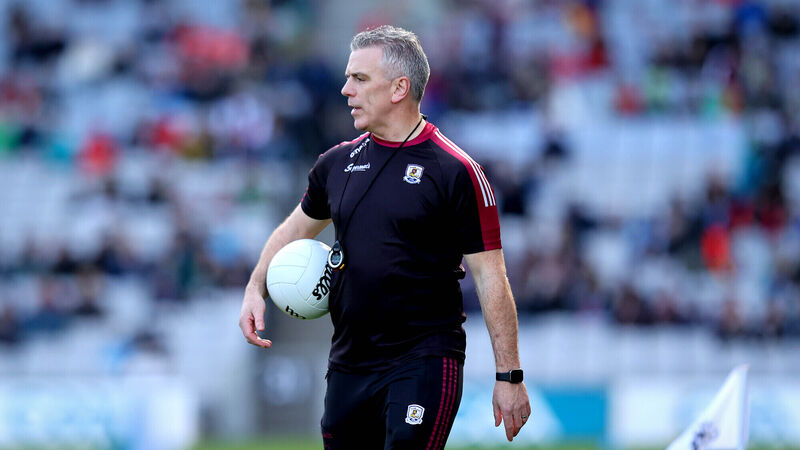Paul Rouse: Joyce has chance to turn the tide of Galway’s recent football history

MAN OF THE WEST: Galway manager Padraic Joyce. Picture: INPHO/Ryan Byrne
Let’s start with a statement of the blindingly obvious: it is exceptionally hard to win an All-Ireland.
This is a truth which repeats itself year after year, when excellent teams full of brilliant players fall short of the ultimate goal despite making enormous life-filling sacrifices.









